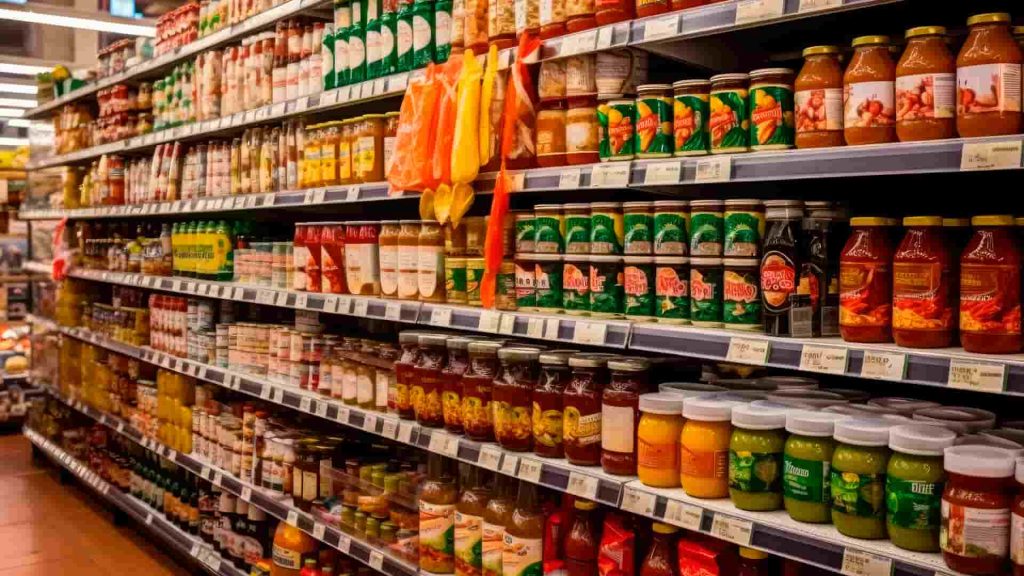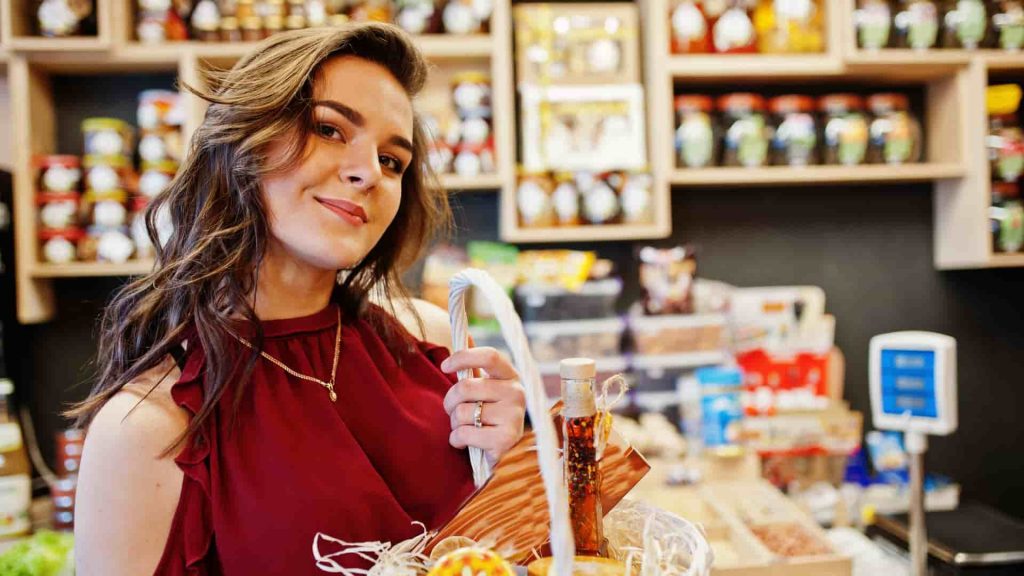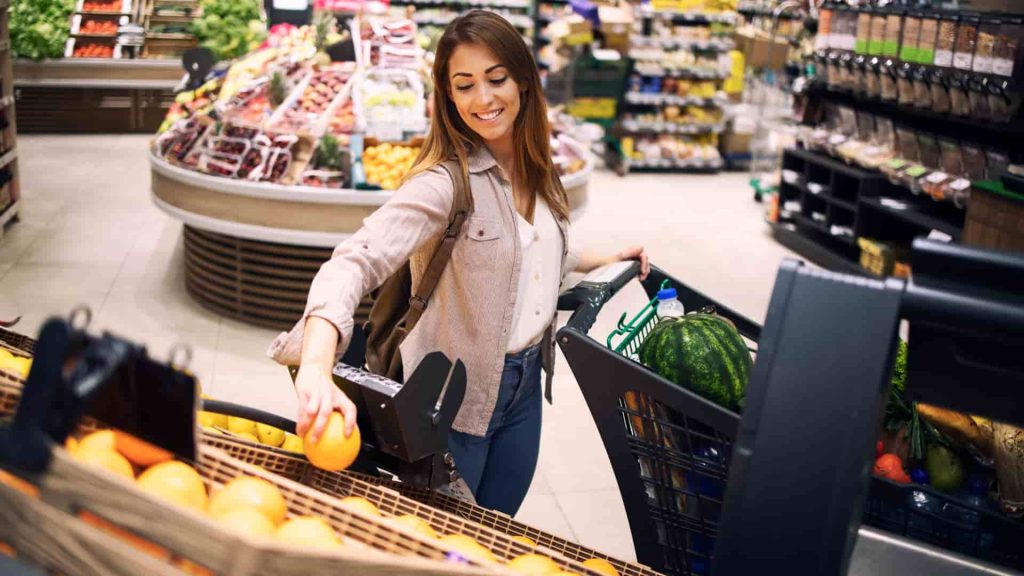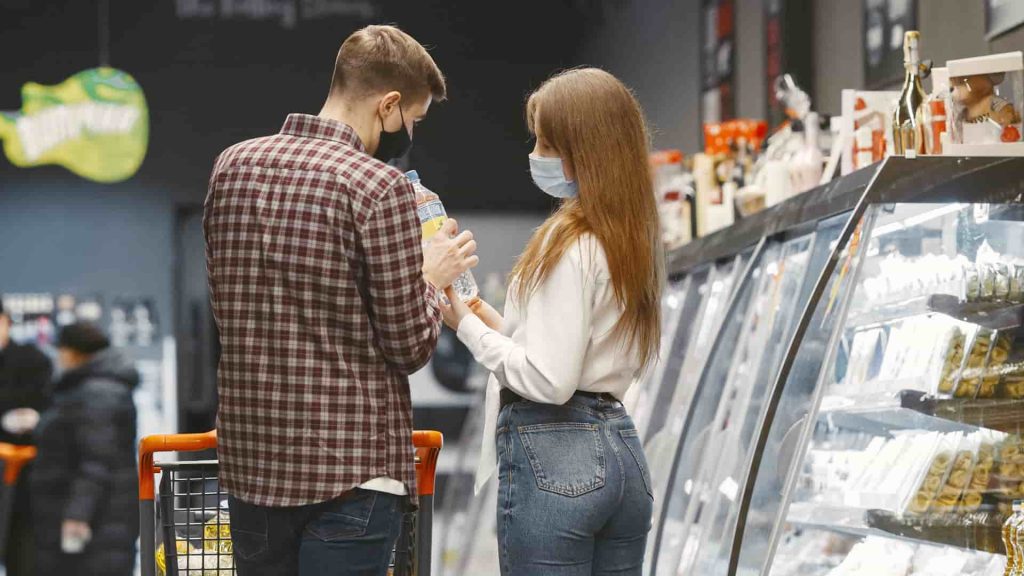
You’ve just landed in the land of precision and practicality, but German supermarkets are more than just a place to stock your pantry.
Grocery shopping is almost always a necessity, as important as shelter and food and water. However, supermarkets in Germany are simply more than an afternoon activity.
They’re a carousel of sustainability, thanks to the genius ‘Pfand’ system. Imagine popping a bottle of Berliner Kindl, and instead of tossing it into the abyss of forgotten plastics, you’re part of a recycling rhapsody! Toss it into a magical machine, hear the clink, and voila – your Pfand is back in your pocket!
But wait, there’s a twist in this shopping tale! Sundays in Germany whisper the secrets of closed doors and hushed streets.
Yet, amidst this calm, there are days marked by the buzz of “Verkaufsoffene Sonntage” – rare and festive, these open Sundays are like spotting a unicorn in a field of horses. Shops fling open their doors, offering sales amidst a carnival vibe!
Strap on your shopping shoes, and let’s waltz through this guide, unlocking the quirky, the fun, and the fabulously efficient world of German supermarkets.
Understanding German Supermarket Layouts
As you step into a German supermarket, you’re not just entering a store; you’re embarking on a well-organized journey through culinary delights and everyday necessities. Here’s how the layout typically unfolds:

Entrance: The Welcoming Aisle
- The Gateway: Upon entering, you’re likely greeted with seasonal offers or promotional items. Think of it as a teaser of the deals to come.
The Heart of Freshness: Produce & More
- Fruits & Vegetables: Vibrant and often local, the produce section is typically upfront, showcasing a range of fresh colors and textures.
- Bakery (Bäckerei): Near the entrance or embedded in the produce area, the scent of fresh bread and pastries is irresistible. From hearty ryes to sweet treats, it’s a carb lover’s paradise.
- Deli & Meats (Fleischtheke): Adjacent to the bakery, find an array of meats, sausages, and cheeses, often served by expert butchers or deli staff.
- Dairy (Molkereiprodukte): Usually found after the meats and cheeses, offering a selection of milk, yogurt, butter, and more.
Your recommended post for the week: Struggling to Make a Budget for Your Move to Germany? Here’s Our Detailed 7-Step Plan
The Staples: Dry Goods & Beyond
- Center Aisles: Venture into the maze of middle aisles for dry goods, canned items, and household necessities. It’s organized, but remember, the treasure is in the hunt!
What is Unique to German Supermarkets
- Pfand Machines: Often at the front or back, these are for returning bottles and cans for a deposit refund.
- Eco-Friendly Options: An entire section dedicated to organic and sustainable products, reflecting Germany’s commitment to the environment.
- Alcohol Section: Unlike many countries, alcohol is readily available, with a vast selection of beer, wine, and spirits.

Key Terms and Phrases You Can Use in German Supermarkets
Effectively shopping at a German supermarket isn’t just about recognizing the layout; it’s also about understanding some key terms and phrases. Here’s a handy table to guide to make your life a little easier:
| English | German | Pronunciation |
| Entrance | Eingang | “Ayn-gahng” |
| Exit | Ausgang | “Ows-gahng” |
| Shopping Cart | Einkaufswagen | “Ayn-kowf-vah-gen” |
| Basket | Korb | “Korb” |
| Checkout | Kasse | “Kah-suh” |
| Cashier | Kassierer/Kassiererin | “Kah-see-er-er/Kah-see-er-eh-rin” |
| Receipt | Quittung | “Kwit-toong” |
| Sale | Angebot | “Ahn-geh-boht” |
| Open | Geöffnet | “Geh-ur-fnet” |
| Closed | Geschlossen | “Geh-shloh-sen” |
| Fresh Produce | Frischware | “Frisch-vah-reh” |
| Organic | Bio | “Bee-oh” |
| Alcohol | Alkohol | “Al-ko-hol” |
Don’t forget to read: Understanding the Nuances of Student Accommodation in Berlin
Tips on Asking for Help in German Supermarkets
- Excuse Me: “Entschuldigung, können Sie mir helfen?” (en-shool-dee-goong, kew-nen zee meer hell-fen) – It means “Excuse me, can you help me?” and is a polite way to start a conversation.
- I’m looking for…: “Ich suche…” (ikh zoo-khe) followed by the item name. If you don’t know the item in German, you can say the English word slowly, and often, they’ll understand.
- Do you speak English?: “Sprechen Sie Englisch?” (shpreck-en zee English) – Most people will understand basic English, and asking in German is a sign of politeness.
Always remember, a smile goes a long way, and attempting the local language is always appreciated.
Popular German Supermarket Chains to Look Out For
Germany is home to a variety of supermarket chains, each offering unique shopping experiences. Here’s a look at some of the most popular ones:
- Aldi: Known for its cost-efficiency and no-frills shopping experience, Aldi is a favorite for budget-conscious consumers. It offers a range of staple products at very competitive prices. Aldi Nord and Aldi Süd are two separate groups operating in different regions, but both stick to the principle of high quality at low prices.
- Lidl: Similar to Aldi in its low-price strategy, Lidl offers a slightly wider variety of products, including a more extensive selection of fresh produce and bakery items. It’s known for weekly special offers on non-grocery items like clothing or appliances.

- Rewe: Offering a more upscale shopping experience, Rewe features a larger selection of brands and products, including an extensive range of organic and international foods. It’s a bit pricier but popular for its quality and variety.
- Edeka: As the largest supermarket chain in Germany, Edeka prides itself on a wide selection of goods, including high-quality fresh produce, meats, and bakery items. It offers a balance of price and quality, with a focus on customer service and a pleasant shopping environment.
We think you’ll love this: From Student Visa to Permanent Residency in Germany: 5 Important Yet Overlooked Nitty-Gritties to Keep in Mind
The Checkout Process in German Supermarkets
When discussing the German supermarket practices, ‘efficiency’ and ‘consistent timing’ are two keywords that often come up. The main reason for this is the well-equipped, organized and structured check-out system and packing practices. They are super user friendly and self-explanatory.
- Speedy Scanning: Checkout lines in Germany are known for their efficiency. Cashiers scan items at a remarkable speed. Be ready to keep up, especially during busy hours.
- Self-Service Options: Many stores now offer self-service checkout kiosks. These are ideal if you have a few items and are comfortable with a DIY approach. The screens offer an English language option, making it easier for non-German speakers.
Payment Methods and Packing Tips in German Supermarkets
German supermarkets are modernizing but still have some traditional elements when it comes to payment and packing:
- Cash and Cards: While cash is still king in many places, card payments are widely accepted. However, it’s important to note that not all stores accept credit cards; debit cards (EC-Karte) are more commonly used.

- Bring Your Own Bags: In line with eco-friendly practices, customers are encouraged to bring their own bags. Bags are also available for purchase, usually at a small fee.
- Packing Your Items: There is typically a separate area where customers can pack their groceries after paying. Packing at the cashier’s counter is not common and can be frowned upon, as it holds up the line.
Also read: You Won’t Believe How Germany’s Liability Insurance System Operates!
Cultural Shopping Norms and Etiquette to Follow in German Supermarkets
Shopping in Germany is not just a routine; it’s an experience woven with cultural norms and etiquettes. Here are some you should be aware of:
Bring Your Own Bags
- Eco-Conscious: Most German shoppers bring their own reusable bags. It’s an eco-friendly practice and saves you from buying new ones at the store. Keep a few in your car or bag for impromptu shopping trips.
Bottle Recycling Systems
- Pfand System: Germany’s ‘Pfand’ system is renowned. Most plastic and glass bottles, as well as cans, come with a deposit (“Pfand”) that you pay when purchasing the item. You can return these containers to any supermarket for a refund. Look for the “Pfand Rückgabe” sign to locate the machine where you can return items.
Queuing Etiquette
- Orderly and Efficient: Lines at the checkout are orderly. It’s important to wait your turn and maintain personal space. Skipping ahead or pushing is frowned upon.
- Quick and Ready: Be prepared when it’s your turn. Have your payment method ready, and pack your items swiftly to avoid holding up the line.

Behaviours to Adopt and Avoid
| Behavior to Adopt | Behavior to Avoid |
| Bring and use reusable bags. | Leaving a mess or disorganized shelf. |
| Return bottles/cans for a refund. | Skipping the queue or being disruptive. |
| Weigh and label your produce. | Blocking aisles or being unaware of others. |
| Pack quickly and efficiently. | Forgetting to have your payment ready. |
| Respect the queue and wait your turn. | Ignoring store closing times. |
Make sure to read: 5 Incredible Tips For Your Study Abroad in Germany to Make it a Transformative Experience!
German Supermarkets: Tidbits to Take Home
You’re now ready to twirl through the aisles of German supermarkets like a local. Remember the cart carousel dance — a €1 coin unlocks your chariot, and returning it ensures your coin’s return. It’s a merry-go-round of efficiency!
Don’t forget the bread bagging bonanza — your bread deserves more than a mere plastic shroud. Embrace the embrace of paper, often graced with whimsical designs or clever quips, adding a chuckle to your checkout.
So, with your cart’s wheel whirring and your eco-friendly bag brimming with bounty, bid “Auf Wiedersehen” to the days of shopping confusion. Embrace each grocery run as an adventure, a cultural carousel that spins you through the marvels of meticulous German shopping!
Keep laughing, keep shopping, and above all, keep savoring those uniquely German touches that make each trip a treat.
Happy shopping, or as the Germans say, “Fröhliches Einkaufen!”




